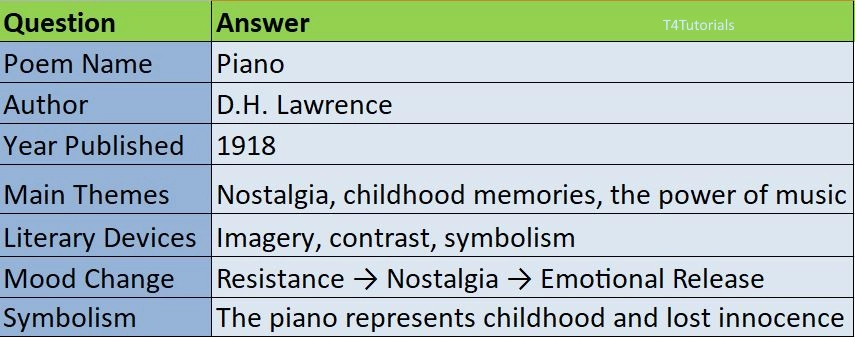Summary:
“Piano” is a poem by D.H. Lawrence that explores themes of nostalgia, childhood memories, and the emotional power of music. The speaker hears a woman singing and is transported back to his childhood, where he remembers sitting under the piano while his mother played. The memory is vivid and deeply emotional, evoking a sense of longing for the past. As the poem progresses, the speaker struggles between his present self and the overwhelming emotions from his childhood. Despite trying to resist, he is overcome by nostalgia, leading him to tears. The poem highlights the bittersweet nature of memories and how music has the power to unlock deep, hidden emotions. Lawrence uses imagery, contrast, and a melancholic tone to convey the depth of the speaker’s feelings.
10
Score: 0
Attempted: 0/10
Subscribe
| Question | Answer |
| Poem Name | Piano |
| Author | D.H. Lawrence |
| Year Published | 1918 |
| Main Themes | Nostalgia, childhood memories, the power of music |
| Literary Devices | Imagery, contrast, symbolism |
| Mood Change | Resistance → Nostalgia → Emotional Release |
| Symbolism | The piano represents childhood and lost innocence |